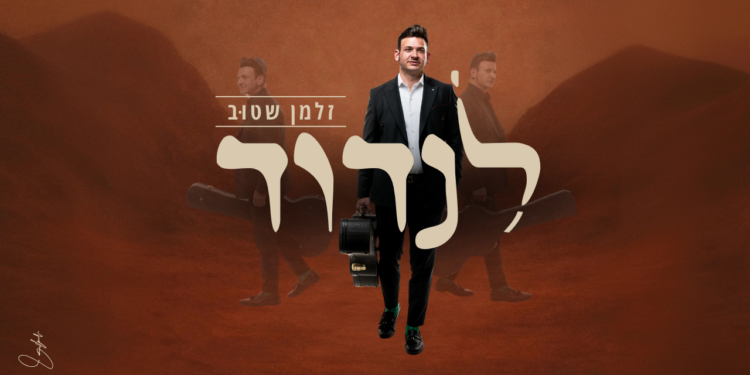Half a decade of writing culminates in a new album: an introduction to a musical journey in the contemporary Jewish world
Zalman Stub (36), a cantor and composer from Jerusalem, is releasing his debut album “Lindod ” this week – a musical work that documents an individual’s personal journey within the Jewish world. The album, produced over the past year and a half, presents a unique musical approach that combines tradition and innovation in the search for an authentic spiritual connection.
Stub, a father of two sons and a Jerusalemite, grew up in a musical home – his mother is a veteran composer and musician. He has been writing and composing since the age of 15, but began creating professionally only after discovering the power of music to touch people,
through his work as a cantor in the synagogue, including in musical services and other events. He took his first step into the world of commercial music with the single “Keren Or” (2018), which received widespread acclaim. As time went by, he gained more experiences and musical material, began hosting a successful talk show, an exceptional radio show, and wrote columns for the most part. The new album “Lindod” includes 11 songs: including Or Chol, Keren Or, Shabbat Kodesh, Ratzo Vishov and a duet with Aharon Razel and a song by Rabbi Shlomo Carlebach. The songs were written as part of the composer’s personal journey, with the text written first and the melody erupting from it. Throughout my life, a song was never just a song, it was a story. “I don’t just connect notes together, I have an idea, a story or an experience that I went through, which connects me to a point that ultimately results in a song.” The concept of “Nedida-wandering” takes on a deep meaning in the album. According to Stubb, “a true wanderer always visits home, otherwise he is on a journey of escape and not a journey of discovery. He sees wandering as a constant process of search and discovery.” Wandering is a musical expression of a journey of longing for connection, to the relationship between us and the Creator, which includes humans and ourselves. Stubb identifies Rabbi Shlomo Carlebach as a kind of guide, “Rabbi Shlomo is a person from whom I am still learning, his influence on me is not limited to music. In general, Carlebach did not only create music, he tells a Jewish story. What I’m also trying to do is evoke a Jewish experience, a relationship with the Creator in a way that I can connect to, and that other people in 2025 can connect to.” Contrary to prevailing musical trends, I consciously chose not to direct the songs specifically towards radio or commercialism. “The first thought was to give personal expression, and only then could we think about the next step,” he emphasizes. “What set the path for me was a song that would have a connection, that whoever hears it would connect to another Jewish journey.”




